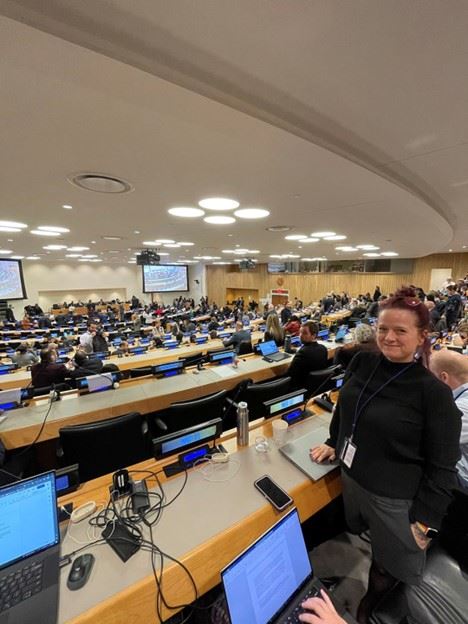After intense negotiations over several years, an agreement was finally reached on a nature agreement for the conservation of biodiversity and the sustainable use of international marine areas on March 4, 2023.
Who governs international waters?
International waters cover over 60 percent of the world's ocean areas. These are areas that no one, or everyone, owns. During the negotiations at the UN headquarters in New York, 193 countries gathered to agree on how these areas should be conserved and utilized sustainably.
The ocean areas have immense potential for resource extraction of food, energy, minerals, and marine genetic resources.
Broad knowledge is needed to manage the ocean areas well
Marine genetic resources, which include species and plants that can be used in biotechnology and the development of new medicines, were a focal point during the negotiations.
- At SINTEF, we have extensive expertise in areas that can contribute to the good management of ocean resources, says Rachel Tiller, chief scientist at SINTEF Ocean and leader of SINTEF's corporate initiative on biodiversity and land use.
SINTEF's research efforts in biotechnology, marine technology, offshore infrastructure, energy, biodiversity, and social science fields such as political science, ethics, and economics are all relevant to ocean management.
SINTEF is actively involved
In collaboration with colleagues from the USA, SINTEF participated as observers in these negotiations, using ethnographic observation methods, interviewing participants, and coding narratives around the process leading to this new agreement.
- We closely follow the global processes around these themes, especially the management of plastic in the ocean and the global nature agreement with its new goal of 30 percent conservation of nature both on land and at sea. The last goal, which global leaders agreed on in December 2022, could not have been realized without this very agreement being negotiated in New York for areas beyond national jurisdiction, says Tiller.

Challenges must be solved across national borders
SINTEF works on biodiversity in collaboration with industry and academia globally. In addition, climate goals guide SINTEF's activities.
Both climate and nature goals must be solved across national borders; therefore, SINTEF participates in both the UN climate summits (most recently in Egypt in 2022), the nature agreement (most recently in Montreal in 2022), and the recent negotiations in New York on a new marine environmental agreement.
The new agreement has been discussed for nearly 20 years, with formal negotiations starting in 2018.


